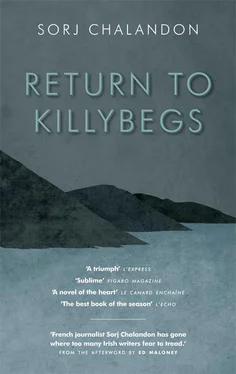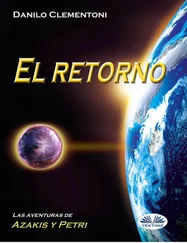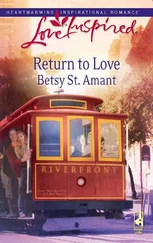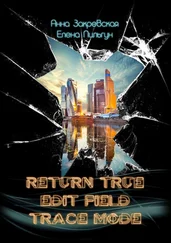— I met the bravest of the brave this morning. Tom Williams walked to that scaffold without a tremor in his body. The only people who were shaking were us and the hangman, Father Alexis had recounted to the inmates gathered in the prison chapel.
— Don’t pray for Tom Williams, the chaplain added, pray to him, for at this moment Tom is a saint in heaven.
So Tom guided us.
All over the city, groups attacked the police and the RUC with bricks. A police station was burned down. At Crossmaglen, thirty IRA óglaigh attacked the British army base to kidnap an officer and hang him. The operation failed, but a policeman was killed. Two others were shot in County Tyrone. A fourth died in Belfast while pursuing some men who were planting bombs. We were lost, maddened with rage, drunk on vengeance. On the front page of the Belfast Telegraph an outraged journalist wrote of how two Republicans had challenged some American soldiers by giving them the Nazi salute.
Father Alexis also told of how Tom was whistling on his way to meet death. He was whistling ‘God Save Ireland’, our old national hymn. The one we would sing at home, in the pubs, during marches, in stadia. The one we would hum softly when we passed British patrols. The one we would bellow until we were out of breath, our hands full of stones.
‘God Save Ireland!’ said the heroes!
‘God Save Ireland!’ said they all.
Whether on the scaffold high
Or the battlefield we die,
Oh, what matter when for Erin dear we fall!
My brother Seánie was interned in October 1942. No evidence, no trial, no sentence. They were isolating headstrong men. On 3 January 1943, it was my turn, and Danny Finley’s. For a week I had pains in my arms — the left one from being gripped by the policeman, the right from my mother clinging on to me. Hostility, love, two black stains bruising my flesh in equal measure.
They came in the middle of the night. I rolled down the stairs, dragged by the hair and by my shirt collar. I was sleeping fully clothed, I was waiting for them. Wee Kevin was crying, Brian and Niall were crying, baby Sara was howling in her cradle. A policeman whacked me in the eye with the butt of his gun a few times. He beat my mother on the arms and in the face to force her to let go. She fell, her hands clasped over her mouth. My mother on the ground and my first true cry of vengeance. The one that makes you get up and fight. That hits you in your gut when your heart hesitates. My mother on the ground. Her lips, my face, her saliva and my blood. She had pulled out her rosary and handed it to me with both hands. She was roaring at the Virgin as they carried me away. For the first time, I called on hatred to give me strength.
Farther up the street, facing the wall and with their hands above their heads, stood Danny and a few men. People were throwing slates from the roofs, hitting the metal of the armoured cars. We were forced into a truck, kicking, punching, enraged. Some police shot at the windows. They were the ‘B-Specials’, the worst of the lot, the assassins of our people.

We arrived at Crumlin, ten Irishmen, ankles and wrists shackled, walking one behind the other through the corridors.
Danny and I were the youngest there.
— Are the Fianna recruiting in playschool now? joked a prisoner.
It was in this prison that Tom Williams’s body had been desecrated. The place had been described to me. Brick walls messily smeared a greyish-white. The dilapidated paintwork in tatters, blistered, soiled by fingers, shoe soles and damp. The red hexagonal floor tiles underfoot. The metallic passageways, the footbridges, the spiral iron staircases, the arched ceilings, the narrow, never-ending passages. Our cells with their black doors. I knew about all of that, but I had never imagined either the noise or the stench. A nightmare of shouting, of protest, of orders, of human barking. The metal of high barriers, the clanging of doors, the grinding of iron against the floors, the walls, the heavy, clattering footsteps of the guards. People had told me about the solitude of prison, but not the cacophony. I was astonished. And everything smelt of sick men. Their sweat, their breath, their filth, their food, their shit, their piss. Arriving in the B wing of the prison, I brought my hands to my nose, pulling the chain from the others.
— That stinks of Irish pig, eh wee rebel? the warder spat at me.
— Don’t answer!
Danny’s order from where he was walking behind me.
— Doesn’t your mother smell a bit like that between her legs?
I looked at the dirty day through the skylights that were covered in wire.
— Reminds you of your pigsty, eh?
— He’s just a kid! Let him breathe, another prisoner said.
Without a word the screws threw themselves on him. He fell. We all fell. They were striking us and spitting on us. We tried to protect ourselves. I was lying down, kicking the air. Other warders arrived, yelling. There were a dozen of them running at us, batons raised. They lined up with their backs to the wall, facing each other with us in the middle. They attacked as one, all of them at the same time, like a line of woodcutters. They were crushing our arms and legs under their heels. I was crying out with pain. The others were roaring with rage. Invisible fists were violently pounding against the cell doors.
— IRA! IRA! IRA!
I could no longer smell the prison stench. I could no longer hear its metal. I had blood in my mouth and my ears were on fire, my nose smashed. The din was inside me. I thought of my father’s blows, my head turned to stone, blocking out the pain, my eyes burning and my cheeks smeared with saliva to make him think I was crying. A whistle was blown sharply. Two warders threw bowlfuls of freezing water at us. I was cold with fear when I arrived; now I was frozen with pain. We were jumbled in a heap in the middle of the line of cells, a mass of flesh and ropes. The screws were out of breath. They were watching us wordlessly, their batons dangling in their hands. A prison officer arrived. He lit a cigarette.
— Put them in their cells tomorrow. They’re not moving for now.
And then he turned away.
We remained like that the whole night, piled on the concrete that was sticky with blood and water. I was lying on my back, a guy’s foot against my throat, another’s cheek against my cheek and the dead weight of Danny lying on my legs. Someone had vomited. I closed my eyes without sleeping. I was shaking. That’s when I heard a voice, a thin thread.
— Tyrone?
It was Danny. He was whispering.
I had blood in my mouth and dirty, bloody foam caked on my lips.
— If you can hear me, move your foot.
I moved slightly.
— Are you listening to me?
I made the same painful movement.
— Well then, here you go. There’s an IRA unit waiting in ambush for an English patrol in the countryside outside Crossmaglen. The Brits pass there every day at five in the evening. At ten past five there’s still no sign of them. Captain Paddy looks at his watch and says, ‘Shit, I hope nothing’s happened to them…’
I convulsed. A laugh. Pains in my chest and stomach.
In ainm an Athar, agus an Mhic, agus an Spioraid Naoimh…
I recited the Our Father in Irish in my head.
And Tom Williams was praying with me.

The following day I was led to a cell, alone. My twelve-by-seven-foot space contained an iron bed, a bedside table, a slop bucket and a washbowl. There were two hooks on the wall for my clothes. There was an arched brick ceiling painted cream, a floor of caked blood and a high skylight through which the daylight would enter only to dissipate before it reached me on the floor. My first prison cell. And my first tears. They were waiting for a signal from me. Since I’d arrived I’d been too busy with pride and pain. But once the door was locked behind me and the walls closed in around me, I was just a seventeen-year-old. No longer a Fianna, no longer a Republican, not even Irish… a soldier of nothing and nobody. I cried, curled up on my bed, knees drawn into my chest and hands crossed under my chin.
Читать дальше













